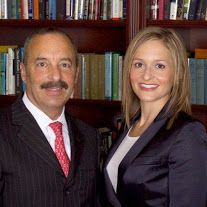Strategic Default

Buying a home is almost always viewed as an investment that should gain value over time. For most people, a home is the largest purchase that they will ever make in their lifetime, and they are generally willing to make a large investment. A home is a large piece of property, after all. However, the economy in the United States is still categorized as “unstable,” and the return on any investment is never guaranteed.
In the past few years, many people have found themselves “upside down” in their mortgage. That is, they now owe more money that the bank says that their house is worth. In many cases, with the decline and/or instability in the housing market, it can take years before a home regains all of its value; in some cases, it may never reach its initial value. What some home owners have chosen to do is to stop making payments, even if they can afford to stay current, simply because the home has become a bad investment. This scenario is known as Strategic Default, which is sometimes referred to as voluntary foreclosure or “walking away” from an investment.
Generally speaking, strategic default is more of a business decision than it is a decision based on not being able to afford current payments. As with any decision to stop making payments for something that you owe money on, there are consequences that must be taken into consideration before choosing to default on a loan. The state of Georgia allows deficiency judgments where the lender can seek a personal judgment against the borrower to recover the deficiency after a foreclosure sale. For example, if the total debt owed on a home is $350,000, but the home only sells for $275,000 at the foreclosure sale. The deficiency is $75,000. The lender can seek a personal judgment against the borrower to recover the deficiency.
Any default on a loan will also negatively affect your credit score, and it will make you ineligible for a Fannie Mae-backed mortgage for seven years.
For individuals who are upside down on a home mortgage, it is often in their best interest to pursue a Chapter 13 or Chapter 7 bankruptcy. Business owners with larger financial accounts are often able to cover the loss of strategic default. It is beneficial to seek the advice and counsel of a bankruptcy attorney who can review options with you before making a large decision that will impact your future. Gingold & Gingold, LLC, can navigate these issues with you to understand the implications and help make the best choice for your family. Contact us today.







